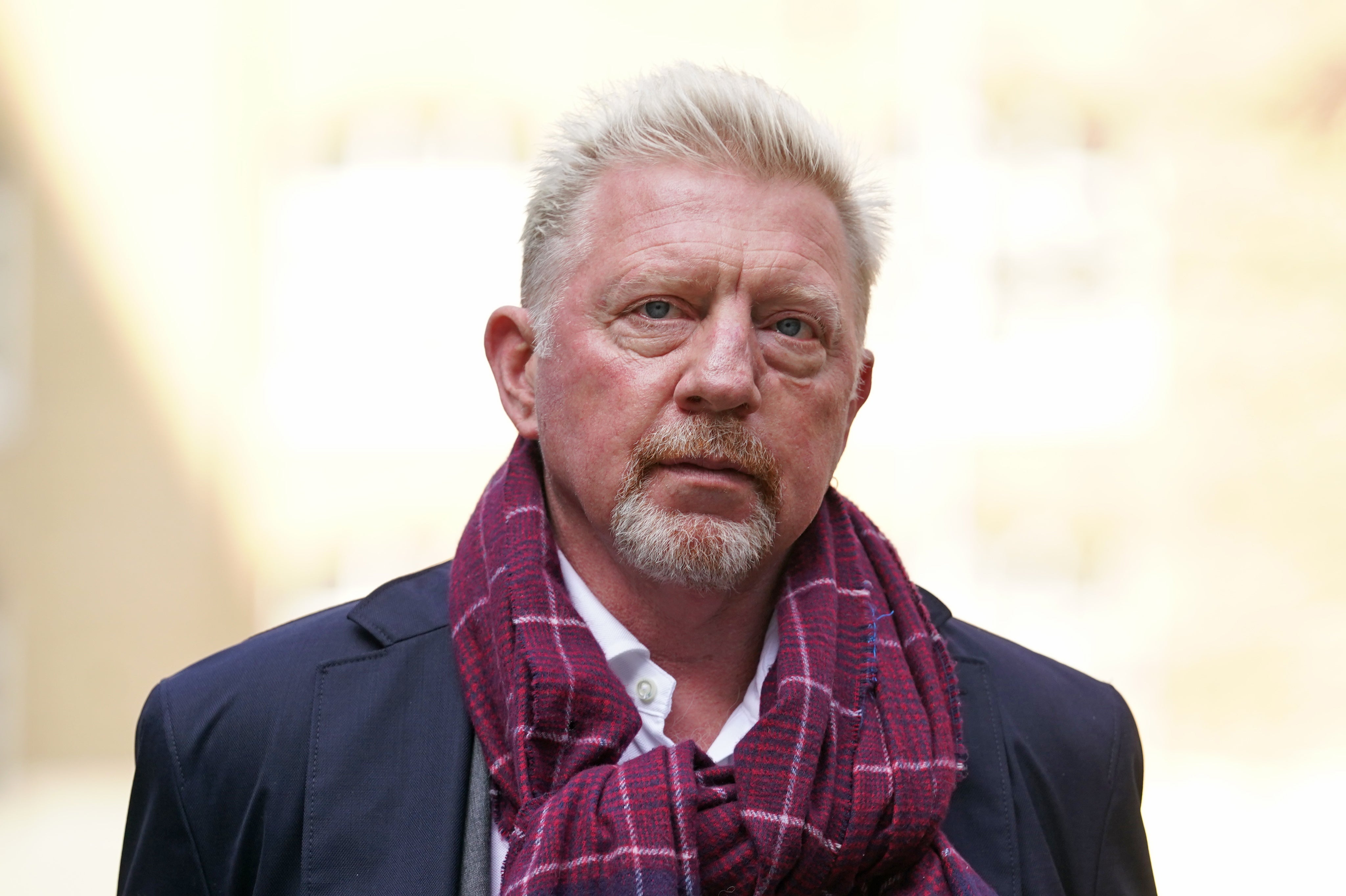Boris Becker tells court he does not know where his Wimbledon trophies are
The former tennis great is on trial accused of failing to hand over assets.

Six-time Grand Slam tennis champion Boris Becker does not know where his Wimbledon trophies are, he has told a jury.
Becker was declared bankrupt on June 21 2017 and is on trial accused of failing to hand over assets including nine trophies and medals from his glittering career after he burst on to the scene by winning the 1985 Wimbledon’s men’s singles title at the age of 17.
Becker, 54, told the jury at London’s Southwark Crown Court he would produce the trophies “tomorrow” if he had them.
For the player, it's about winning the title. The trophy is not so much when you are playing. Nowadays I wish I have them to show the to my children
Becker, who said he has sold his properties to help fix his finances, added that he had “lots” of trophies and memorabilia from his top-flight 15-year career but some are now missing.
The German former world number one said: “For the player, it’s about winning the title. The trophy is not so much when you are playing.
“Nowadays I wish I have them to show the to my children.”
Becker, who won 49 singles titles in 77 finals over 16 years, denies 24 charges under the Insolvency Act.
Among the awards he is accused of failing to hand over after he was declared bankrupt are two of his three Wimbledon men’s singles titles, his 1992 Olympic gold medal, Australian Open trophies from 1991 and 1996, the President’s Cup from 1985 and 1989, his 1989 Davis Cup Trophy and a Davis Cup Gold Coin which he won in 1988.
The showpiece trophies presented on court are bigger than the ones the athletes get to take home, the court heard.
Becker described the Wimbledon trophy – the All England Lawn Tennis Cup – as “very large, you have a hard time holding it”.
It is about 60cm by 30cm and “unfortunately” it is not what the winner gets to take home. Instead there is a “replica that is much smaller, perhaps half the size or even smaller than that”.
Becker said the Australian Open “is a big tournament to win it, but what you keep is like this”, cupping his hands towards each other for the jury to see.
He said “it is the smallest” of the trophies and added that the top players “in effect… made fun of them”.
Becker added that Roger Federer “made a complaint many times” about one trophy, and “they enlarged the trophy that we got to take home”.
At the peak of his career, Becker could be travelling for 40 weeks of the year.
He told the court: “Obviously what you receive on the court is not what you keep. What you keep is usually given to your agent or manager, they take it and you usually are travelling to another tournament.”
Becker said he knows he gave a President’s Cup trophy to his mother.
Some of his trophies were auctioned off for £700,000 to pay his debts and he has made various appeals to try to locate the missing trophies.
Major tennis associations, halls of fame and museums are among the places that have been contacted, but Becker said he is “not in a better position today” to say where they are.
The court has heard that Becker’s bankruptcy resulted from a 4.6 million euro (£3.85 million) loan from private bank Arbuthnot Latham in 2013, and £1.2 million, with a 25% interest rate, borrowed from British businessman John Caudwell the following year.
Becker said he had been seeking to pay off a more than £3 million loan from Arbuthnot Latham, including through the sale of his estate in Mallorca, Spain, known as the Finca, and he was “shocked” by his situation.
During cross-examination, prosecutor Rebecca Chalkley told Becker he was “distancing” himself from matters that were part of the build-up to his bankruptcy.
A legal document had been sent “signifying the next steps towards bankruptcy” but Becker says he does not remember it, the court heard.
Ms Chalkley said that by January 2017 he would have been aware he was unable to pay the loan but Becker said “that was not correct”.
She told him he had been “deliberately concealing” how much investigators found out about his assets because he was “keeping your powders dry”.
Ms Chalkley said: “There was no consequence of you not telling them too much but there were consequences in you not telling them enough.”
Becker, who said he had worked to verify his assets, added he had put his “complete confidence” in his advisers.
By 2018, letters and emails had been sent to Becker about the outstanding matters in his financial dealings.
Ms Chalkley told Becker he would only “engage” in the process when it was “in your interests to obtain finance or to deal with matters of finance”.
Becker said he had been engaged with the situation.
The hearing was adjourned until Wednesday.
